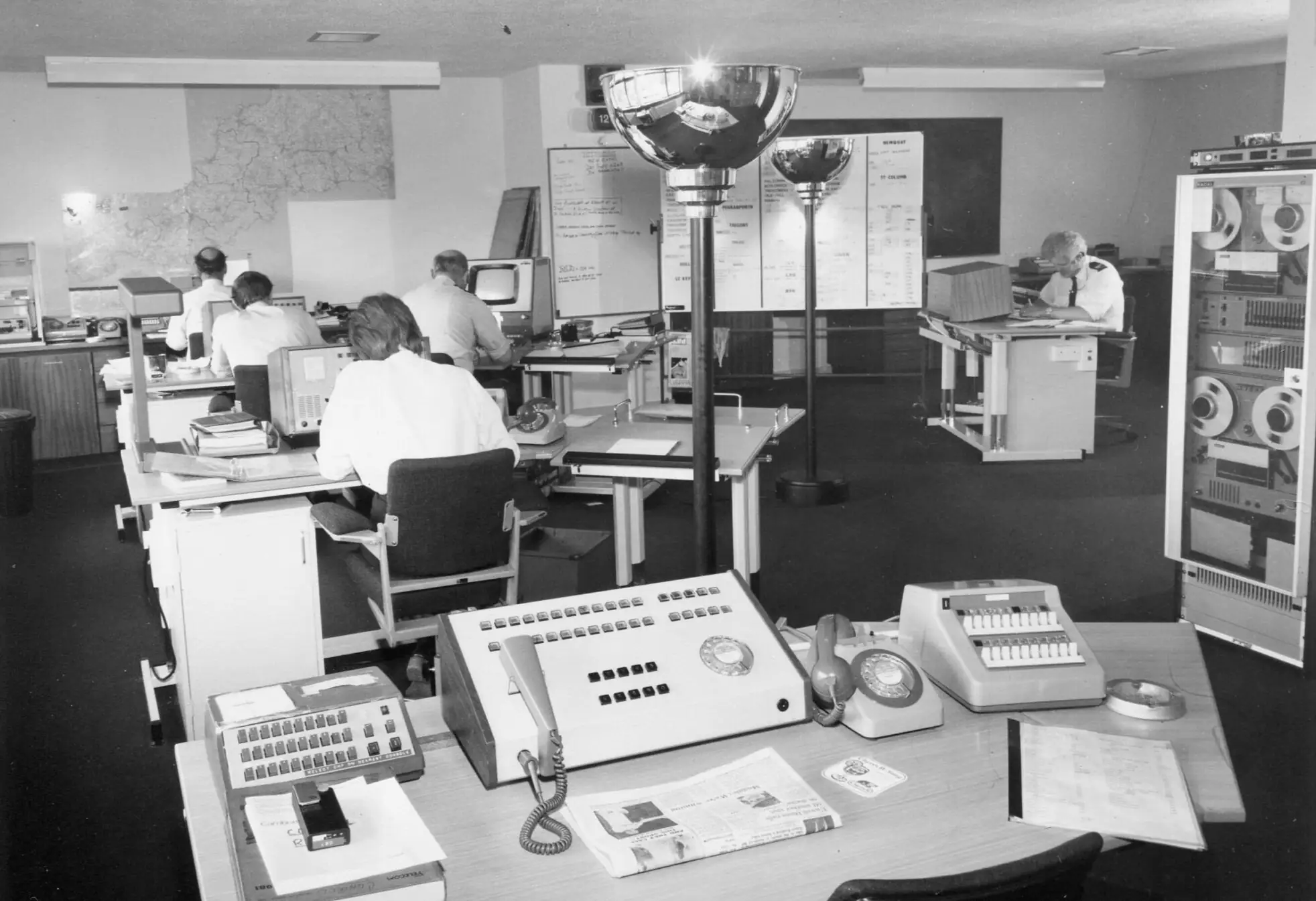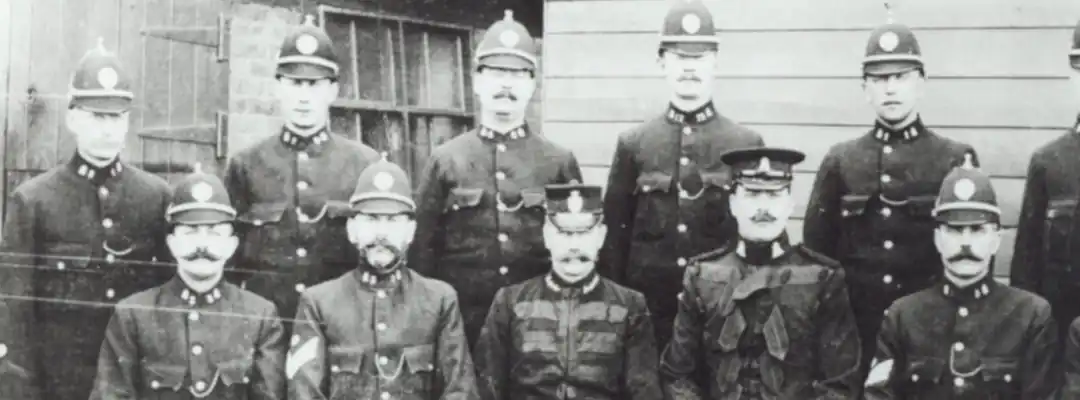Victory in Europe
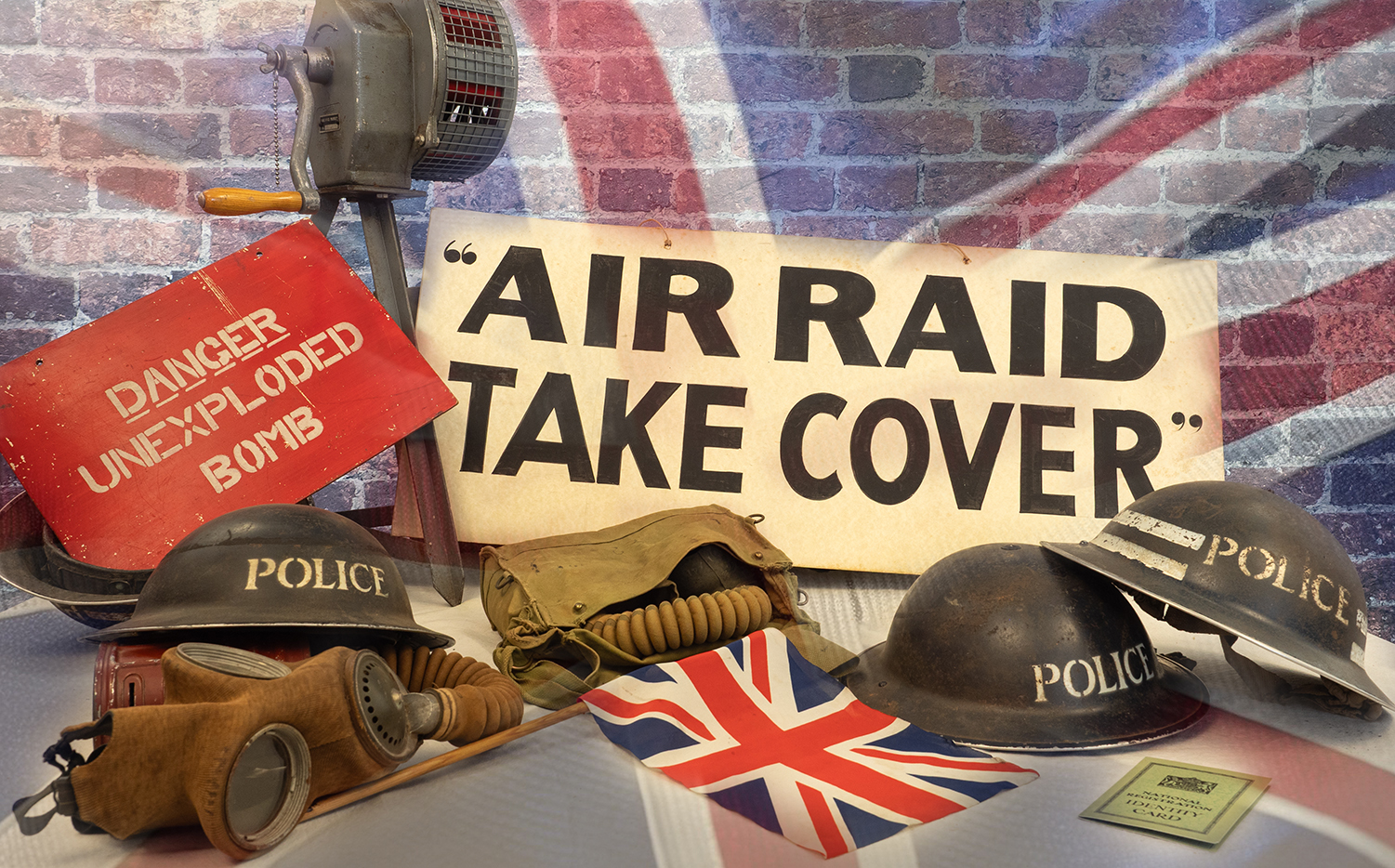
16th September 1944.
Letter from the Secretary of St Thomas (Exeter), Committee of Civil Defence Wardens, Housewives and Fireguards requesting to organise Cease Fire Celebrations.
The Battle of Normandy following the D-Day landings on 6th June 1944 had ended after 2 months, 3 weeks and 3 days. But the war was not yet over.
In attempting to start organising ceasefire celebrations in 1944, the Committee of St Thomas were somewhat premature, or understandably in need something to hope for after over 5 years of war on the home front.
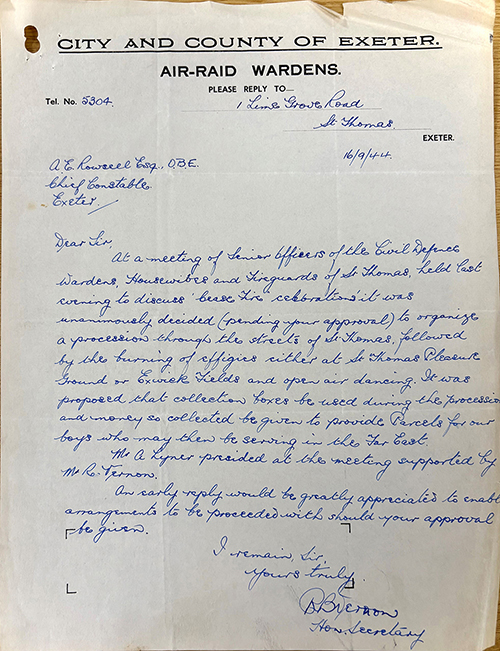
However, the Committee of St Thomas, like many others in Britain, were sure it was the beginning of the end for Hitler and Nazi Germany.
At the end of 1944, most police officers seconded to the Air Raid Precautions in Cornwall were returned to their police duties.
From January 1945 sub-committees were set up to consider the issues of policing post-war. Cornwall Constabulary’s Chief Constable Major Hare, was given authorisation to increase the strength of his force. He wasted no time and made plans to improve police living conditions in order to retain officers and attract new recruits.
From Mid-April discussions about victory parades were happening all over the country.
This note to Major Sparkes of 24th April details police representation for a Victory Parade in Exeter.
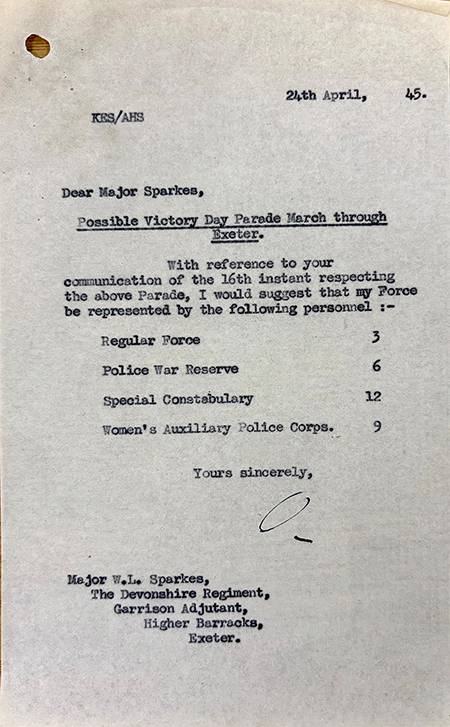
28th April, disbandment of Civil Defence Services War Organisation was to begin. The exceptions being police auxiliaries and special constables. The police had been heavily involved in the training of Air Raid Precautions staff and supporting Civil Defence. Major Morris, Chief Constable of Devon was Air Raid Precautions Controller for Devon (excluding Torbay).
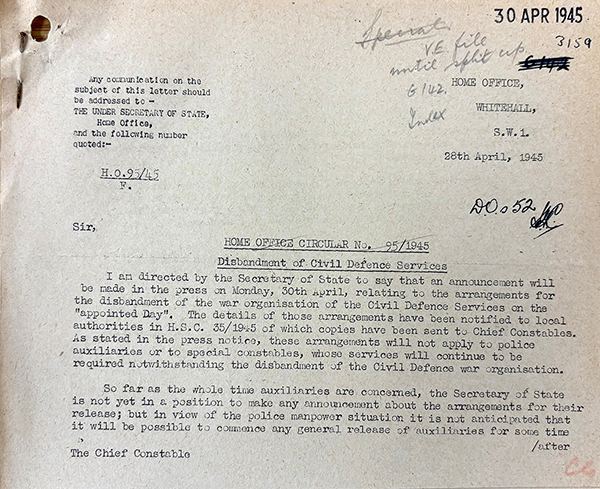
30th April 1945, the Home Office sent out a circular regarding the celebration of cessation of hostilities in Europe, and how the celebrations were to be managed began arriving on Chief Constables’ desks the following morning.
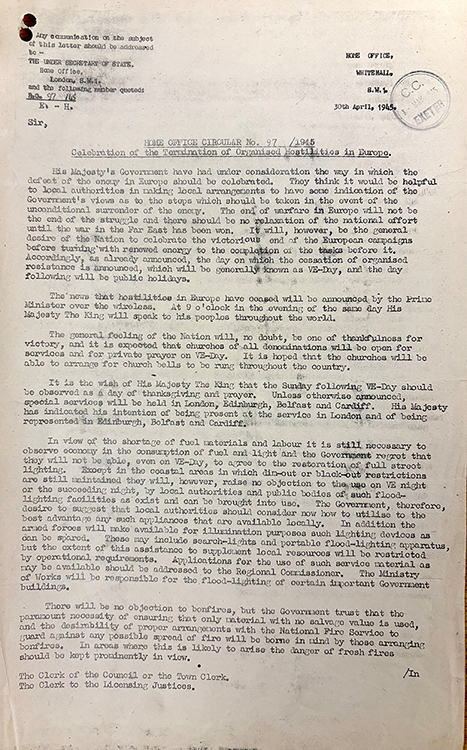
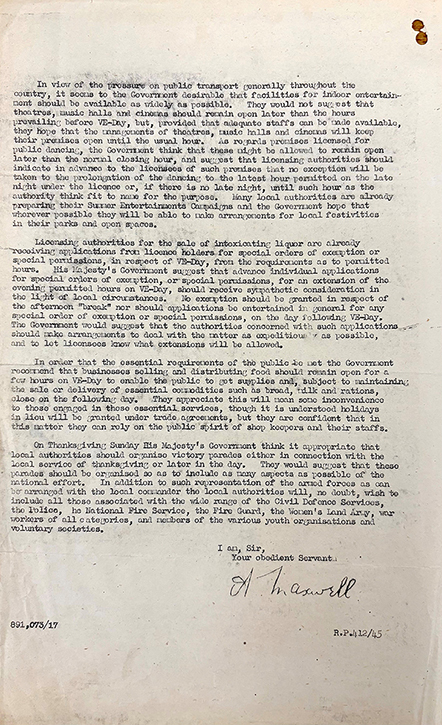
1st May, from Whitehall: Holidays in celebration of the end of hostilities in Europe. Holidays for all, except the police who would be needed (of course).
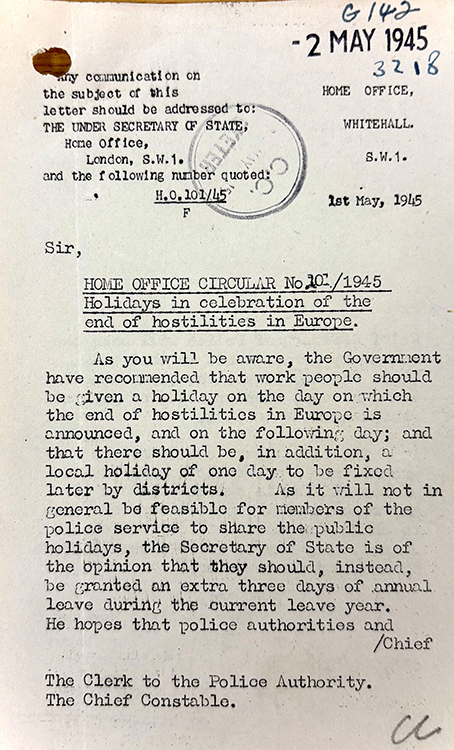
2nd May, newspapers reported the death of Adolf Hitler, but Grand Admiral Dönitz vowing to ‘fight on’. As the public were digesting this news, Berlin fell to the Russians and the surrender of Nazi Germany began.
Demobilisation of Civil Defence order sent out.
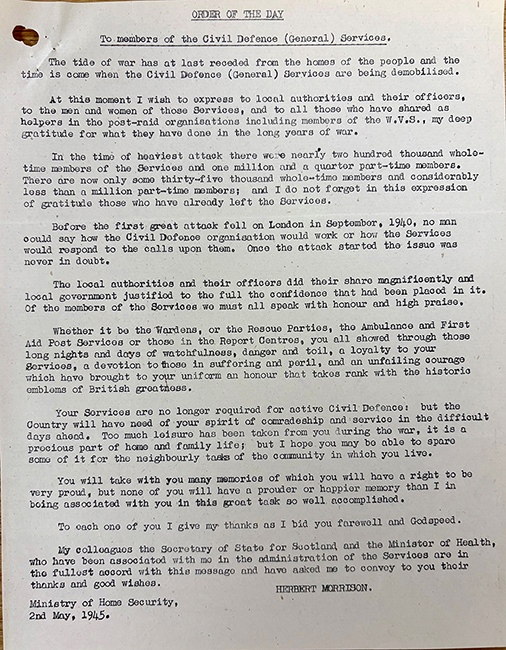
It would only be right to remember that the police had been heavily involved in training of Air Raid Precautions staff and supporting Civil Defence. Major Morris, Chief Constable of Devon, was Air Raid Precautions Controller for Devon (excluding Torbay) throughout the war. Chief Constable Tarry (until 1940) and Chief Constable Rowsell (from 1941) of Exeter City worked to protect the city and its boundaries. The Home Guard in Devon and Cornwall were recruited and trained by the police. In Cornwall Assistant Chief Constable Hocking was in charge of the War Department, liaising between Chief Constable Hare and the Civil Defence authorities.
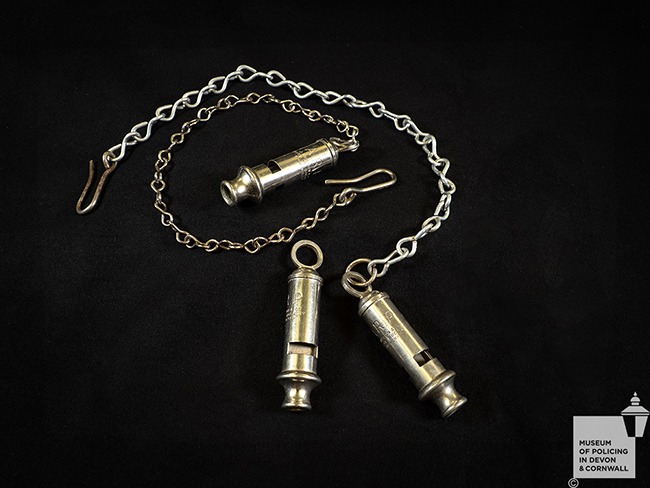
5th May, from Whitehall detailing the announcement of VE Day by the Prime Minister. The war in Europe seemed at an end but officially nothing had been announced.
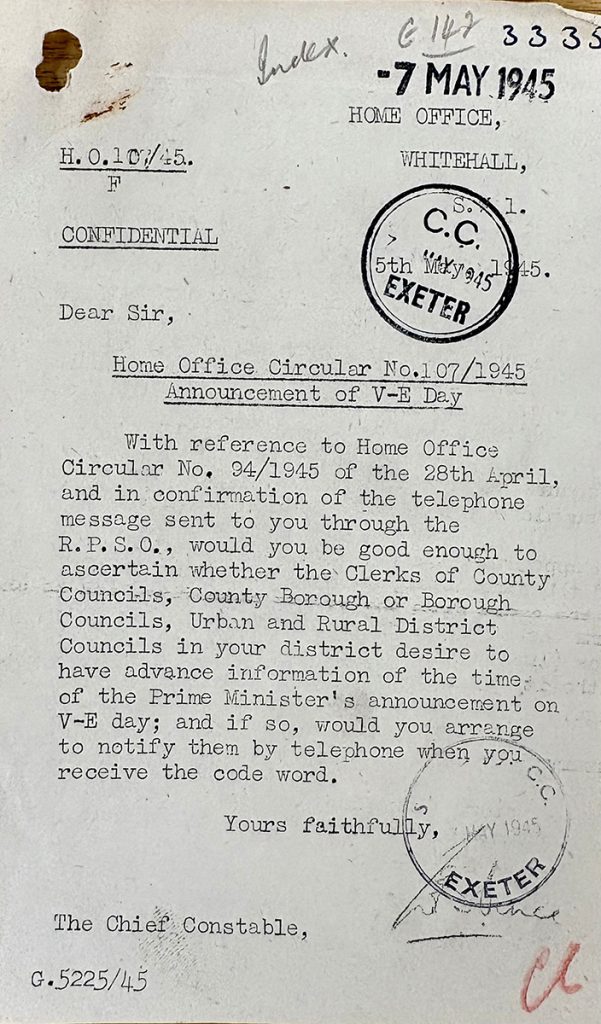
7th May, Nazi Germany finally surrendered unconditionally to the Allies, and at 10.15pm a relay telephone message went out to police headquarters and stations all around Britain. The celebrations had already begun.
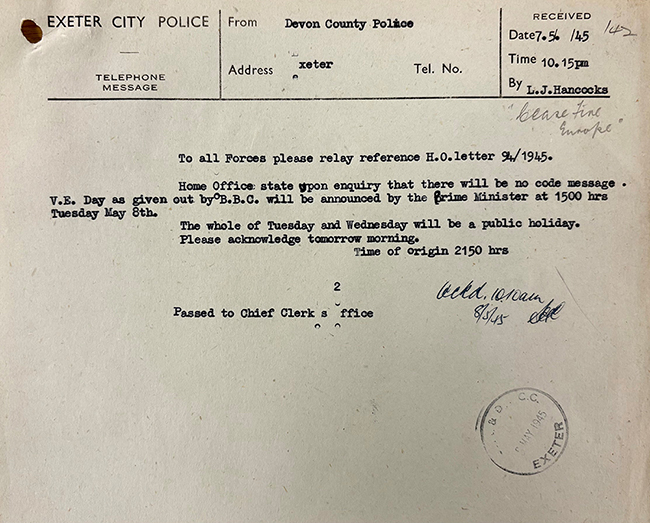
8th May 1945, a Tuesday, newspapers announced “Victory in Europe Day” and 2 days of public holiday to celebrate. In Plymouth and Exeter, crowds gathered around the bomb-damaged remains of their cities to listen to statements from local and military officials. Like the rest of the country, the people of Devon, Cornwall and the Isles of Scilly were absolutely ready to celebrate. Leave for the police was cancelled and extra hours on duty were required to ensure public order with, of course, considerable latitude.
Retired Chief Superintendent Ernest Dickaty of Plymouth City Police wrote in 1977 of his experience that day:
‘Twelve-hour duty for all, with the aid of War Reserve E G Crocker, I had to feed the men on duty. Reserve stocks of soup, Spam, biscuits, with supplies of large loaves enabled the Women Auxiliaries in the canteen and office staffs to produce vast quantities of sandwiches etc., all of which was ferried to stations and places of resort, notably the Hoe. Our last trip was to the Hoe in the evening and only with the greatest difficulty was I able to force a way through the vast crowds with our aged Hillman Minx Saloon, leading at the same time, the Lord Mayor to the same spot. But we made it and later were able, in our turn, to join the fun‘.
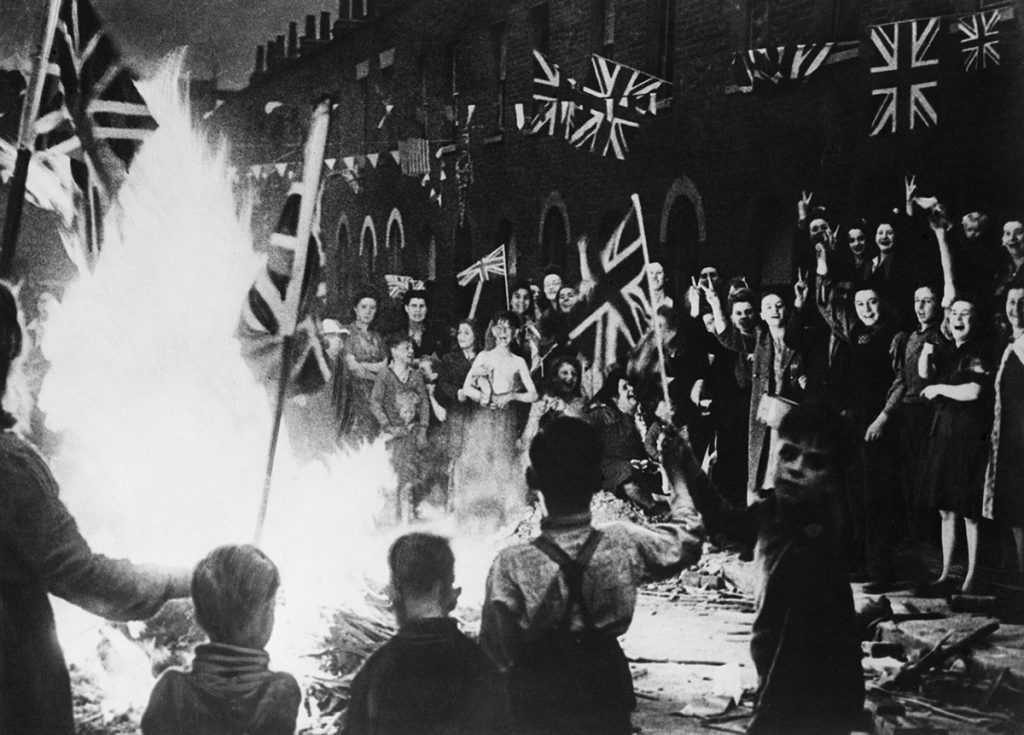
On the Hoe Promenade the city police struggled to prevent people from throwing deckchairs onto a large bonfire lit by the city’s servicemen to keep the dancing area illuminated. Unfortunately, the fire brigade hadn’t been officially informed about the termination of blackout rules and turned up to extinguish the fire. They were mobbed by the crowd, the hose was ripped from the fire appliance and thrown into the fire, leaving no option other than to retreat.
Residents of Bodmin descended on Mount Folly, happily dancing and singing with the police still on duty, but enjoying the fun.
In Exeter the high jinks reported include a statue being whitewashed by two students and a flag torn down, presumably as a souvenir. However, the Mayor of Exeter was happy judging by his letter to Chief Constable Rowsell!
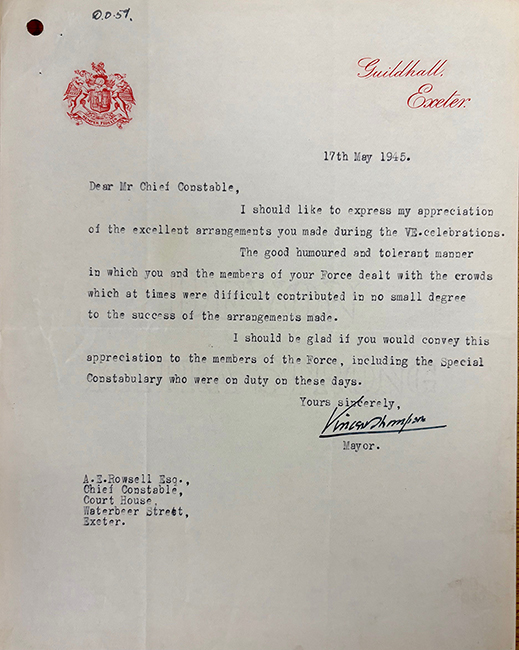
During the many thanksgiving services following VE Day, in Exeter, recognition was given to the Exeter City Special Constabulary by the Mayor for their selfless duty and often dangerous work throughout the ordeal of war.
Like the rest of the country, Devon, Cornwall and the Isles of Scilly would have to wait until the 15th August 1945 before truly celebrating peace, and bringing all our fighting forces home.
Never forget.
By Andrea Leggett. With thanks to Mark Rothwell and the late Ernest Dickaty for their contribution to this article.
